In the last four years, it’s fair to say that our football has been at a standstill
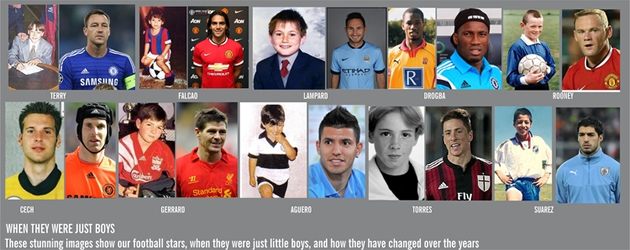
 FIVE years ago, within two months, Monomotapa and CAPS United knocked out two South African clubs from the Champions League and Confederation Cup in an amazing triumph of raw talent over the Moneybags of Super Diski.
FIVE years ago, within two months, Monomotapa and CAPS United knocked out two South African clubs from the Champions League and Confederation Cup in an amazing triumph of raw talent over the Moneybags of Super Diski.
The Green Machine’s triumph was secured away from home, at the Rand Stadium in Johannesburg, with Nyasha Mushekwi scoring the priceless goal in a 1-0 win, for a 2-1 aggregate victory, after the Soweto side had held out to a 1-1 draw at Rufaro.
Swallows were quite a strong side then, finishing with the same number of points as Kaizer Chiefs in the 2007-2008 championship race and above Orlando Pirates with their Zambian forward James Chamanga winning the Golden Boot award.
Monomotapa carried a 2-3 deficit, from Cape Town, but a 2-1 win at Rufaro secured victory, on the away goals rule, with their success being made, even more spectacular, by the fact that their preparations that week were crippled by a damaging player revolt.
Ajax had finished second in the 2007-2008 championship race, a 2-2 draw away to Golden Arrows on the final weekend, ensuring that they dropped the two points that would have won them the league title on goal difference.
But the two Super Diski sides were beaten by the two Harare sides, whose poor financial bases belied their richness in raw football talent, which soon came to the attention of the continent with six CAPS United players being bought by South African teams, the following year, and Monoz losing their four best players to TP Mazembe.
Back then, just five years ago, even us in the media could brag, with conviction that we had a product that could stand toe-to-toe against the Moneybags of Super Diski, we even claimed we had the better football, and the results posted by CAPS and Monoz helped buttress our positions.
The previous year, in 2008, Dynamos had gone all the way to the semi-finals of the Champions League, in a campaign full of both bravery and substance, and when the baton was handed to Monoz in 2009, charting virgin territory on the continent, they eliminated their South African opponents, beat ASEC Mimosas and qualified for the group stages of the tournament.
In 2010, Gunners even beat record Champions League winners Al Ahly 1-0 in the first round, before a 0-2 away defeat in Cairo, sent them crashing out but they did better than Orlando Pirates, who had lost in the preliminary round to Gaborone United, the same team that would be tamed 1-4 by Dynamos here in the second round and the Glamour Boys were the only Southern African team standing, by the time the battles reached the group stages.
Two South African giants, Orlando Pirates, in the preliminary round, and SuperSport United in the second round, had crashed by the wayside.
THAT WAS THEN, THIS IS NOW
However, in the last four years, our football has just come to a standstill, some will even say it has drifted 100 steps backwards, and gone are the days when we used to brag, with a lot of substance backing our bravado, that we were the best league in this part of the world and, for all our lack of financial muscle, we had a better product than the Moneybags of Super Diski.
All that progress made in those dozen years of success, started by DeMbare’s remarkable journey to the final of the Champions League in 1998, complemented by the Warriors’ qualification for their maiden Nations Cup finals five years later, under Mhofu, the same magician who had masterminded the Glamour Boys’ incredible journey, has gone down the drain.
All that evolution, epitomised by our boys showing that Tunisia wasn’t a fluke, as they qualified for the 2006 Nations Cup in Egypt, without even breaking sweat, in a journey started by Mhofu with that 3-0 win over Mauritania in Harare in October, 2003, strengthened by our 2-0 win in Kigali under Rahman Gumbo and completed by that 3-1 win over Rwanda here, under Charles Mhlauri, in September 2005, has been flushed down the drain.
In the past four years, our national game has lost all the progress it recorded in those 12 years between 1998 and 2010 — we are now losing in the first round, of the preliminary stage, of the Nations Cup, and where we used to be regular members of the group stages of the qualifiers for this tournament, we now watching from a distance, playing Swaziland in a friendly, while the real football family, whose membership now includes Lesotho, are playing in the real games.
We can’t even win a single World Cup qualifier, out of six matches, we now end up with just two points out of a possible 18, it’s normal to lose at home, Egypt came and scored four goals in our backyard last year, Guinea, too, that team which could not even beat Valinhos’ Warriors — home and away — in the qualifiers for the 2010 Nations, now comes and beats us home and away in the Race to Brazil 2014.
Even our clubs, who used to punch above their weight on the continent, have been severely crippled in the toxic environment and we haven’t had a team in the group stages of the Champions League in the last four years and Dynamos, for years the local team that represented this country with distinction, has lost the fighting spirit on the continent and now even concede six or seven goals, in one game, in the Champions League.
Such has been our stunning decline, in the past four years, those South African clubs, which were no match for us, just five years ago, are now in better shape than us, are now more competitive than us, and only last year, Orlando Pirates went all the way to the final of the Champions League while we barely made an impression in the tournament.
I was one of those stubborn fellows, who stood in the corner of our clubs, arguing for years that they were in better shape than their Super Diski counterparts, were more competitive than those clubs from across the Limpopo, but I have to concede that things have changed now and the South African clubs have made significant progress while we have taken steps backwards.
Maybe, that explains why, two years ago, Motor Action were knocked out by a hopeless South African side, Black Leopards, in the Confederation Cup, suffering the ignominy of losing the home tie at Rufaro 0-2, just three years to the date that CAPS United were knocking out Moroka Swallows from the same tournament by winning in Mzansi.
Others can say that shouldn’t be surprising, after all, most of our best players end up playing for the Super Diski teams which, then, should make them stronger than our clubs but the Great Trek to Mzansi didn’t start in the past four years, it has been going on for the past two decades, but we remained competitive, we remained in good shape and our clubs were good value for those who stood in their corner saying they were better than those from across the Limpopo.
But it’s not only our clubs who are being left behind, by those boys from across the Limpopo, even Bafana Bafana are drifting far away from the Warriors and social media was buzzing, as South Africa beat Congo in Brazzaville, with a number of people here honestly conceding that a gap has been established between them and us.
When we were both failing to qualify for the 2010 Nations Cup finals, we looked like teams of equal strength, when we both failed to qualify for the 2012 Nations Cup finals, there was very little to separate us, but now we look like teams in different classes and, given that, together with Zambia they represent our biggest rivals, their progress, and our stagnation, has been hurting.
DANNY JORDAAN MAKING A DIFFERENCE DOWN SOUTH
In just one year as SAFA president, Danny Jordaan, has transformed an organisation that had lost its way, and was about to lose its soul, revived an association that was in the intensive care unit and stabilised its financial structures that were beginning to suffer from haemorrhagic fever.
He inherited an association sitting on a R46million debt (roughly the US$5 million debt that has been weighing our ZIFA), brought in Ernst and Young to introduce cost-cutting measures, signed a deal with Siyaya TV for R1 billion, which will bring in R175 million a year, ensured that revenue shot up 35 percent in one year and, last week, reported a profit of R10 million.
The SAFA match-fixing scandal had forced Puma to cut their deal with the association but Jordaan only needed months to find a replacement technical partner, and brought in Nike, and he has been rewarded handsomely with the South Africa Under-17 and Under-20 teams both qualifying for the African Youth Championships and Bafana Bafana leading their group in the quest for the 2015 Nations Cup finals.
In contrast, our ZIFA are still battling to free themselves from the ballooning debt, no technical partner has been secured, property is being attached all over the place and while SAFA are employing cost-cutting measures, someone at 53 Livingstone Avenue uses a taxi every day for his travels around the capital, all billed on the association.
Therein, lies the difference, in terms of our approach and Jordaan, certainly, would not have sanctioned this.
HELL HATH NO FURY LIKE ANGRY JOURNALISTS
Grace Chirumanzu, the Zimbabwe Mail Sports Reporter, turned to Facebook yesterday, to show her unhappiness that the local media, including The Herald, gave Cuthbert Dube space to respond to our story, published on Thursday, about the problems ZIFA were having with the Deputy Sheriff with their property being attached and posted:
“I think it is only in Zimbabwe where a Football president realises there is the media when he is on fire or when he feels like communicating. ZIFA president Cuthbert Dube is one man whose communication with the media is one way.
“He says what, when he wants and we write. There is never we ask, he responds and we write.
“Dube has a few selected journalists he talks to, and that’s only his trusted indunas, those he knows will never be critical of what he says, those he knows will be zvidhambakura (lizards), like Constantine M Chimakure would say, nodding at each of his statements without being objective. We have a leader in our football whose Association’s spokesperson has no clue how to get hold of his boss, whose power or weakness is just as that of the poor sports journalist starved of information.
“Those are some of the silly man-made challenges why being a successful journalist in Zimbabwe appears an insurmountable task.
“We are faced with making one of the two choices — Be critical and objective and you will receive a blackout, take bribes and never question and you will be well connected.
“Well, my choice? There were reasons why I chose sports JOURNALISM and not being a Public Relations officer.” — Grace Chirumanzu.
Francise Nyamutsamba – ZBC Sports Reporter
“It’s sad Grace, the man is just not accessible. It does not mean that if you are the president of an association you totally have no contact with the media.
“Communications personnel deal with the media on a day- to-day basis, but when it comes to some big policy issues, at times, you need answers from the president or chairman.
“And remember it is not every day that a journalist would want to interview a president or chairman. Once in a blue moon opportunity yacho haiwanikwe when you are not in good standing with some of our administrators.”
Skumbuzo Moyo — Chronicle Senior Sports Reporter
If I had the power, that press release would not have seen light in any paper in this country but, oops, the only power I have is that of breathing.
To God Be The Glory!
Come on United!!!!!!!!!!!!!!!!!!!!!!!!!!!
Di Mariaaaaaaaaaaaaaaaaaaaaaa!
Text Feedback — 0772545199
WhatsApp Messenger – 0772545199
Email — [email protected]
Skype — sharuko58
- Like my new Facebook page, ROBSON SHARUKO JOURNALIST, follow me on Twitter @Chakariboy, interact with me on Viber and on ZBC’s weekly television football magazine programme, GamePlan on Monday nights, or read my material in The Southern Times.



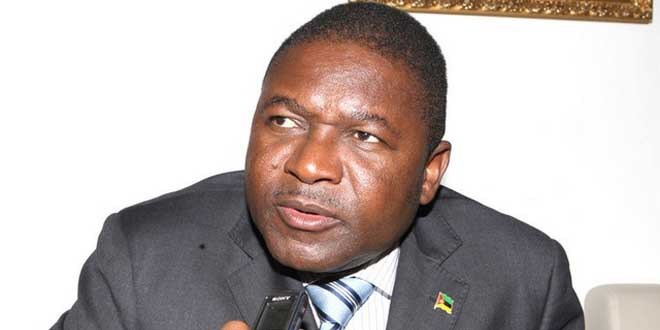
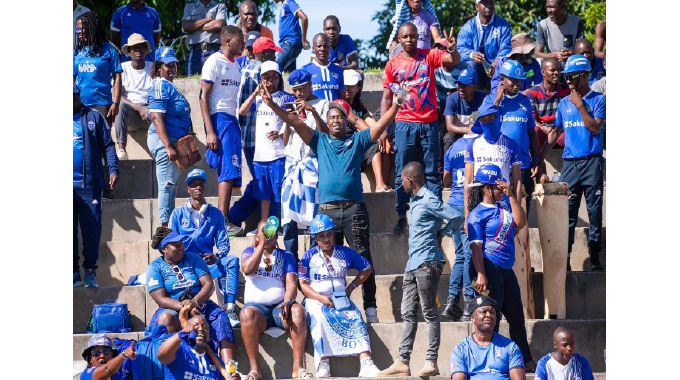
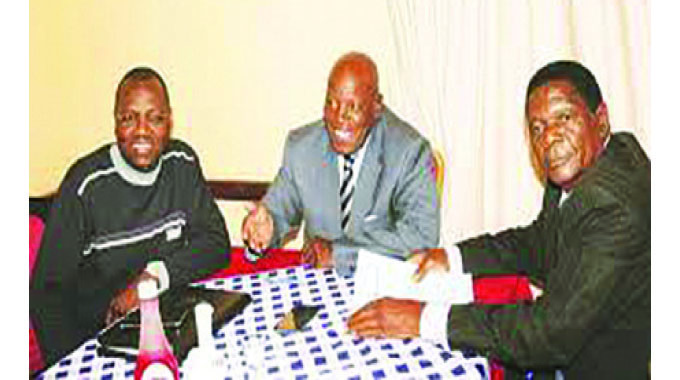
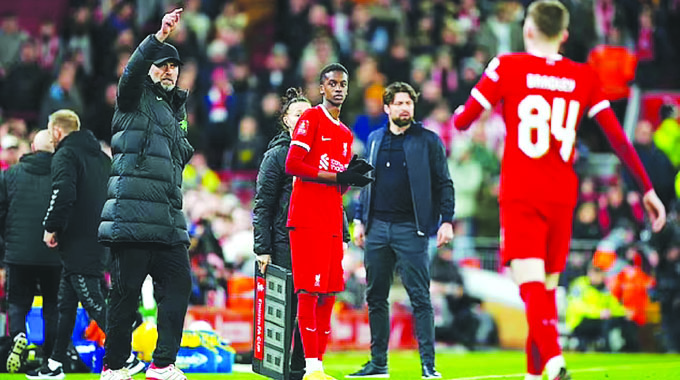

Comments